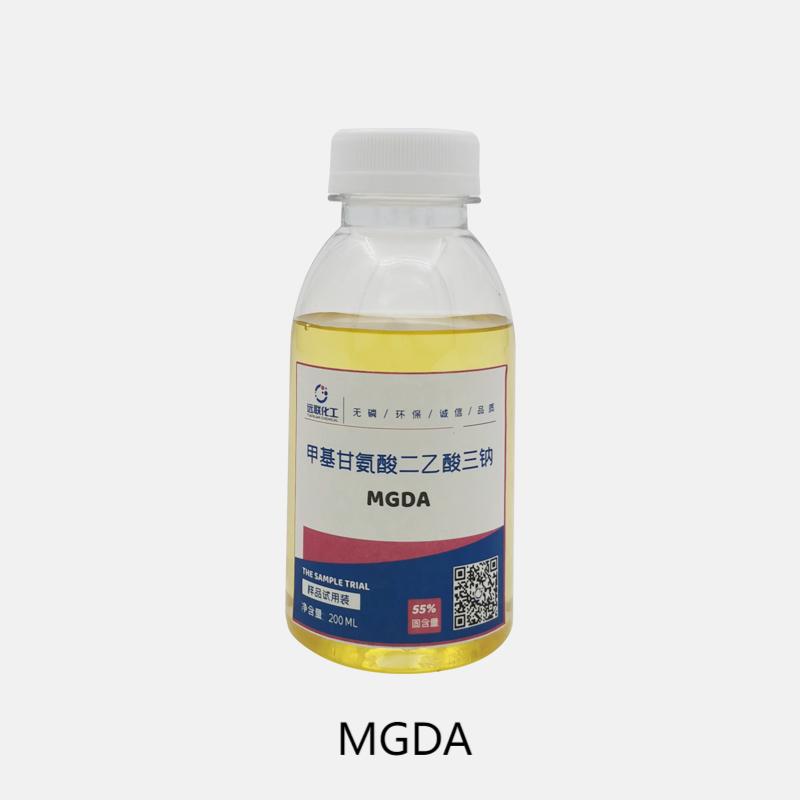
Is Trisodium Dicarboxymethyl Alaninate Safe?
1. Introduction
Trisodium dicarboxymethyl alaninate (TDMA) , also known as MGDA is a chemical compound that has garnered attention in recent years, especially among consumers who are increasingly conscious about the ingredients in the products they use. The complex chemical name often raises questions about its safety. This article aims to evaluate the safety of TDMA based on scientific evidence and regulatory assessments, providing a clear understanding of its use and potential risks.
2. What Is Trisodium Dicarboxymethyl Alaninate?
TDMA is a chelating agent derived from alanine, an amino acid. It serves several important functions in various products. Primarily, it binds metals to stabilize formulations, ensuring that the products remain effective and stable over time. Additionally, it enhances the efficacy of preservatives in cosmetics, helping to extend the shelf life of products while maintaining their quality.
TDMA is commonly used in a variety of applications. In skincare products such as serums and creams, it helps to maintain the stability and effectiveness of the formulations. It is also found in hair care products like shampoos and conditioners, where it contributes to the overall performance of the products. Moreover, it is used in industrial cleaners due to its ability to bind metals and improve cleaning efficiency.

3. Safety Evaluation: Scientific & Regulatory Perspective
Toxicity studies have shown that TDMA has low acute toxicity, as demonstrated in animal studies. It is also non-mutagenic, meaning it does not pose a risk of causing DNA damage. These findings are crucial in assessing its safety for human use.
From a regulatory standpoint, TDMA has received several approvals. The Cosmetic Ingredient Review (CIR) has deemed it safe for use in rinse-off products, although there is limited data on its use in leave-on products. The EU Cosmetics Regulation has also approved its use, with specific concentration limits to ensure safety. Additionally, the FDA indirectly regulates TDMA, recognizing it as Generally Recognized As Safe (GRAS) for indirect food contact. This further supports its safety profile.
In terms of skin sensitivity, TDMA is considered a mild irritant at high concentrations. However, when used in diluted forms, as is typical in most products, it is generally safe. While the risk of allergic reactions is rare, it is still possible, and a patch test is recommended for individuals with sensitive skin.
4. Potential Risks & Precautions
One potential risk associated with TDMA is eye irritation. Like many surfactants, it can cause irritation if it comes into direct contact with the eyes. Therefore, it is important to avoid direct contact with the eyes when using products containing TDMA.
Regarding its environmental impact, TDMA is biodegradable but may affect water hardness. Despite this, it is considered a safer alternative to EDTA, another commonly used chelating agent that has raised environmental concerns.
There are also some controversies surrounding TDMA. One issue is the lack of long-term exposure studies, which makes it difficult to fully assess its long-term effects. Additionally, it is often confused with harsher chelators like EDTA, which can lead to misunderstandings about its safety profile.
5. How to Identify Safe Use in Products
To ensure safe use, consumers should carefully check the labels of products for the presence of trisodium dicarboxymethyl alaninate. It is typically used at concentrations of 0.1–1% in cosmetics, which are considered safe. Consumers can also look for certifications such as EWG Verified™ and COSMOS Organic (if the ingredient is derived from natural sources) to ensure the safety and quality of the products they are using.
6. Conclusion: Is It Safe?
In summary, trisodium dicarboxymethyl alaninate is safe for most users when used in regulated amounts. However, caution is advised for individuals with sensitive skin or eyes. From an environmental perspective, it is a preferable alternative to EDTA. The final recommendation is that there is no need to avoid TDMA, but consumers who are concerned about its safety can opt for certified products to ensure their peace of mind.
Yuanlian Chemical specializes in the production of polyaspartic acid (PASP),tetrasodium iminodisuccinate(IDS), GLDA, MGDA etc. with stable quality and excellent quantity!





Contact us